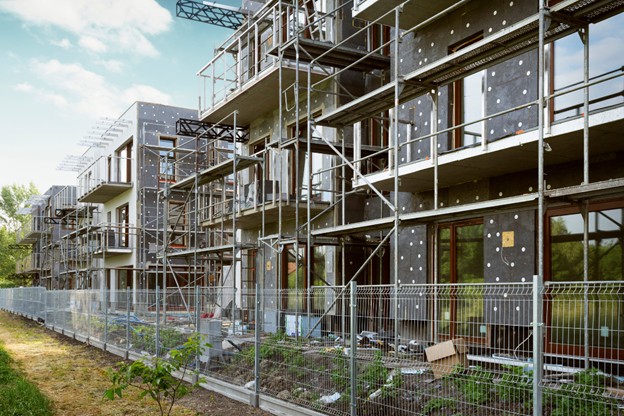Understanding Property Financing Options in Phuket
Phuket is one of the most popular places in Thailand for foreigners to own property, but financing options for non-Thais can be limited and complex. This guide explores how to finance a villa or condominium in Phuket, what’s realistically possible for foreigners, and how to structure your purchase wisely.
Whether you’re interested in a luxury villa in Nai Harn or a condo in Laguna, understanding the financing landscape in Phuket is crucial.
Can Foreigners Get a Mortgage in Phuket?
Foreign buyers often ask if it’s possible to get a mortgage in Thailand, and the short answer is: Yes, but it’s difficult. A few Thai banks and some international banks may offer mortgage loans to non-residents, but there are strict conditions:
-
Loans must typically be in foreign currency
-
Applicants must meet income requirements and provide substantial documentation
-
Mortgages are usually offered on condominiums only, not land or villas
-
The loan-to-value (LTV) ratio is usually conservative – 50-70%
Which Thai Banks Offer Condominium Financing for Foreigners in Phuket?
Although financing options for foreigners in Thailand are limited, a small number of banks do offer mortgage loans specifically for Phuket foreign freehold condominium purchases. These are usually granted under strict terms, and only for condos that are registered under foreign freehold quota. Banks such as MBK Guarantee, UOB Thailand, and Bangkok Bank (Singapore branch) have been known to provide financing to foreigners in certain cases.
These institutions typically require the borrower to meet specific criteria, such as a high credit rating, proof of overseas income, and a substantial down payment (often 50% or more). Keep in mind that lending terms vary and often depend on whether the bank has a foreign lending program in place or not. It’s always best to speak with a local property expert or legal advisor in Phuket who can help navigate the process and liaise directly with these banks.
Note: these banks will ONLY offer loans for foreign freehold condominiums in Phuket. It’s not even worth trying to obtain a loan on a Phuket villa or a leasehold condominium.
Visit MBK Guarantee’s official mortgage loan page.
Learn more about UOB’s foreign buyer home loan options.
You can also contact Bangkok Bank who are known to provide condo loans for expats.
Given all of the above, it’s important to distinguish between how foreigners can actually finance a purchase, and the separate legal structures through which ownership can be held.
Alternative Financing Options for Foreign Buyers
Because Thai bank mortgages for foreigners remain limited, most non-Thai buyers fund their purchase offshore or through staged payment programs.
Developer / Seller Financing:
Some reputable developers offer short-term instalment plans (usually 1-5 years) for new or off-plan projects. These are private agreements, not bank mortgages, and usually require higher deposits and a slightly higher final purchase price.
Equity Release or Personal Credit Offshore:
Many foreigners release equity from property in their home country (refinance, equity loan, home equity line, or personal credit facility), then remit funds to Thailand through legitimate channels. If purchasing a freehold condominium, the funds must arrive through an international transfer with an FETF so the title can be legally registered in the foreign buyer’s name.
Important:
Neither Thai banks nor foreign banks lending offshore will finance a purchase held via a Thai company structure or a leasehold. Banks only lend against foreign freehold condominium titles with clear collateral value.
Thai company structures and leaseholds are therefore cash-only pathways.
Legal Ownership Structures (Not Financing)
Foreign Freehold Condominium:
Foreigners are permitted to legally hold full freehold title in a condominium, provided the project’s foreign-ownership quota has available room.
Leasehold:
Foreigners may secure long-term control via a properly structured leasehold, typically 30 years per term, often with renewal clauses and purchase options. Leasehold is commonly used for villas or land where freehold foreign title is not permitted.
Genuine Thai Operating Company:
Foreigners have historically tried to use Thai companies purely to hold land, but “paper companies” are not legal and are treated as nominee structures.
Only real Thai operating companies, with real Thai shareholders, real capital contributions, and actual business activity, may hold land. Anything else risks corporate dissolution, penalty, and potential land confiscation.
Key Things to Know When Financing Property in Phuket
-
All property purchases MUST be funded from overseas in foreign currency if the buyer wants to hold a condo in their personal name. This requires proper documentation (like an FETF).
-
Title checks and due diligence are essential – whether you’re looking at freehold or leasehold.
-
Legal representation is strongly advised to review contracts, check land title, and structure the purchase safely.
Foreign Bank Loans
If securing a mortgage in Phuket is challenging, consider approaching banks in your home country. Foreign banks may offer loans for purchasing properties abroad, and some provide more favorable rates and terms than Thai banks.
Advantages of foreign bank loans:
- Familiar lending processes and requirements.
- Competitive rates and better repayment terms.
- Access to larger loan amounts.
This option is particularly suitable for expatriates or investors with existing financial relationships in their home country.
Realistic Advice for Foreign Buyers
If you’re hoping to find a Phuket villa or a condominium in a prime location like Kamala, Kata, Rawai or Surin, you’ll almost certainly need to bring funds from overseas.
Even if financing is available, it is not as flexible as in Western countries. That’s why many buyers plan their purchases with cash, or seek alternative routes like developer plans or private financing.
Final Thoughts
Understanding how foreign buyers can finance property in Phuket, and knowing which legal structures are available, helps avoid misunderstandings and unrealistic expectations. Whether a buyer chooses developer instalments, offshore equity release, or manages to obtain local or Singapore-based financing for a foreign freehold condominium, each pathway comes with specific documentation requirements and legal considerations. Clarity at this stage ensures smoother decision-making and reduces risk throughout the purchase process.
Disclaimer: The information contained in this article is provided for general informational purposes only and does not constitute legal, financial, or investment advice. While every effort has been made to ensure accuracy at the time of publication, property laws and regulations in Thailand are subject to change. Readers should always seek independent legal advice from a qualified Thai lawyer before making any property-related decision or transaction.



Social Contact